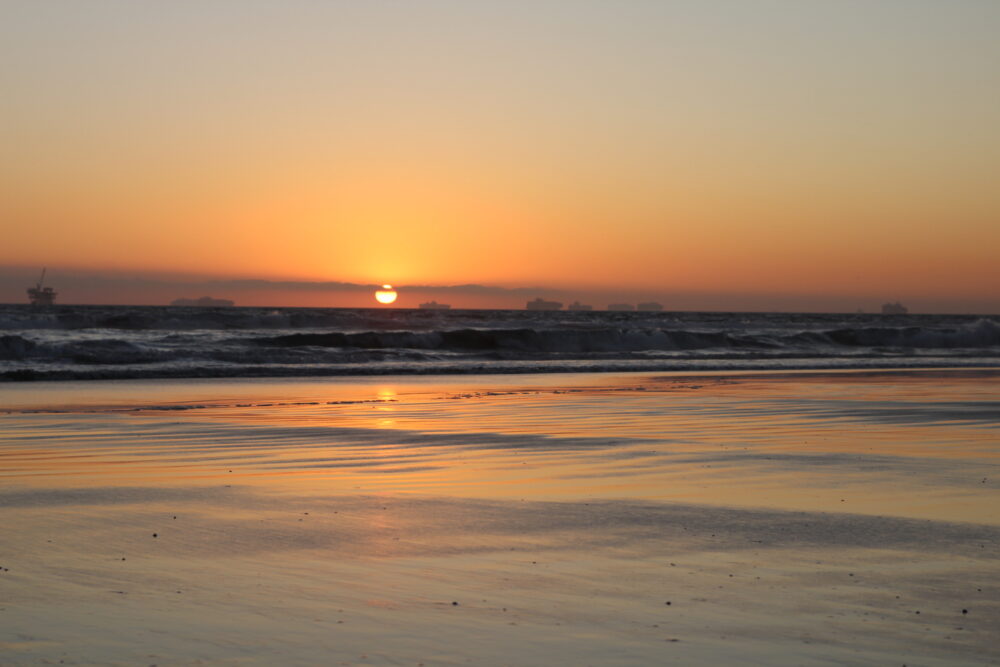
By Alexander Tran
In the last year, the number of ships coming in and out of ports in California has increased to an all-time high. Before COVID-19, it was unusual for more than one of these massive cargo ships to wait for its session. Now with a 26% increase in cargo, the Biden administration announced October 3, 2021 that docks could now move to 24/7 operations to help the intensifying problem.
‘It’s not just a local problem. It’s not a Long Beach, [Los Angeles] problem. It’s not just a California problem. It’s an international problem,” Dee Dee Myers, director of the governor’s office of business and economic development, said.
Californian ports aren’t the only ones facing record-breaking backlogs of cargo ships. The Port of Savannah in Georgia, the fourth largest US port, has also been flooded with ships waiting to unload. In July, Associated Press reported that the port handled nearly 5.5 million 20-foot containers.
“Business is booming and e-commerce is booming. We have seen this transition from just-in-time in supply chains to just-in-case, and that is significantly changing our environment,” Griff Lynch, executive director of the Georgia Ports Authority, said. “Because of all this extra freight being imported, it’s creating a backlog from the ship side to the dockside to warehouses and across the whole supply chain,”
This dramatic increase is not only because of the pandemic but also consumer spending habits. Despite high unemployment rates and economic instability, consumers still spent money on everything ranging from sneakers to home goods to laptops. Before COVID-19, consumers had the choice to spend their money in person, whether it be at a donut store or at a local Macy’s. When the pandemic occurred, it forced Americans and people all over the world to spend their money elsewhere.
“Consumers spent $791.70 billion online with U.S. retailers in 2020, which is up 32% from $598.02 billion the prior year,” Fareeha Ali said from Digital Commerce 360.
Consumers are buying significantly more items online now. The pandemic has brought e-commerce to the forefront of retail. E-commerce is thriving because of store closures and the fear of contracting COVID-19 in public spaces, but the increase also comes from a shift in consumer spending habits. Even though stores are now opening up, consumers still choose to shop online. According to a 2021 Raydiant study on US consumer behavior, it was found that 54% of respondents preferred to shop online. This is a 9% jump from last year’s report, showing a record-breaking increase.
This increase is prevalent in online foot trafficking. The first few weeks of March 2020 saw an 18% increase in in-home data usage, compared to the same month in 2019, giving consumers more time to spend more money online. In fact, The Salesforce Shopping Index found that the average spending of an online shopper was $2.92 per website visit.
Not only are these consumer habits costly, but they also destroy the environment. Because of the increase in e-commerce and goods, many anthropogenic accidents have occurred, such as the oil spill in Huntington Beach. Experts from Vox have concluded that the spill will have a tremendous impact on coastal wildlife for years to come.
“It’s devastating. A big concern is what’s going to happen to them [animals],” executive director of Huntington Beach Wetlands Conservancy John Villa said.
On Oct. 3, officials shut down a six-mile stretch of shoreline, because of one of the largest oil spills in Californian history. The spill came from a tear in the San Pedro Bay Pipeline that leaked up to 144,000 gallons of oil into the ocean.
“Investigators believe a 1,200-foot cargo ship dragging anchor in rough seas caught an underwater oil pipeline and pulled it across the seafloor, months before a leak from the line fouled the Southern California coastline with crude,” an Associated Press author said on FOX 11 LA.





